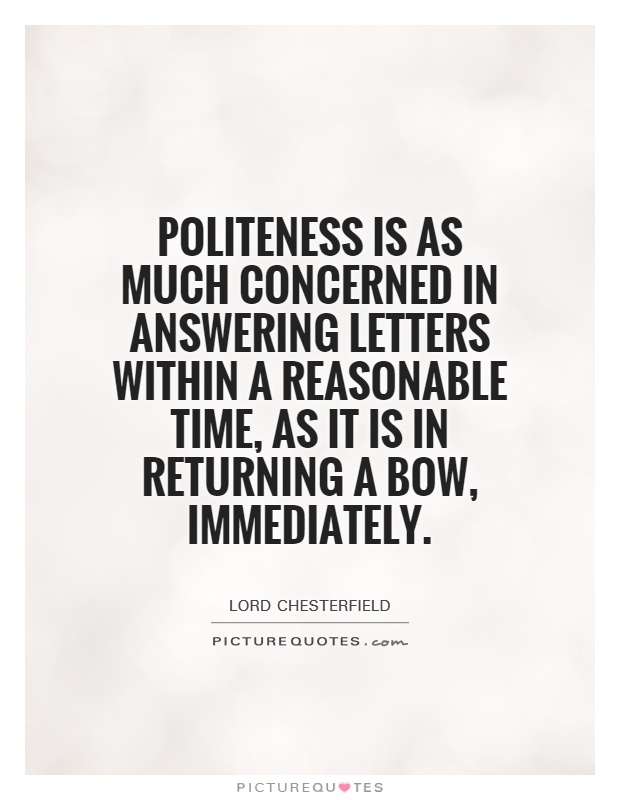Politeness is as much concerned in answering letters within a reasonable time, as it is in returning a bow, immediately

Politeness is as much concerned in answering letters within a reasonable time, as it is in returning a bow, immediately
Lord Chesterfield, a prominent figure in 18th-century British society, was known for his emphasis on etiquette and manners. He believed that politeness was a crucial aspect of social interaction, and that it was just as important to respond promptly to letters as it was to acknowledge a bow with a timely return. In his letters to his son, Chesterfield often stressed the importance of maintaining good manners and showing respect to others through proper communication.Chesterfield understood that in his time, written correspondence was a primary means of communication, and failing to respond to a letter in a timely manner was seen as a breach of etiquette. He believed that showing respect for others' time and effort by promptly replying to their letters was a sign of good breeding and consideration for others. In his view, neglecting to respond promptly to a letter was akin to ignoring someone's greeting or gesture of goodwill, which could be perceived as rude and disrespectful.
Chesterfield's emphasis on the importance of responding to letters within a reasonable time frame reflected his belief in the value of maintaining positive relationships and fostering good communication. He understood that timely responses to letters helped to build trust and goodwill between individuals, and that failing to do so could lead to misunderstandings and strained relationships. By emphasizing the importance of politeness in written communication, Chesterfield sought to instill in his son the importance of showing respect and consideration for others in all aspects of social interaction.












 Friendship Quotes
Friendship Quotes Love Quotes
Love Quotes Life Quotes
Life Quotes Funny Quotes
Funny Quotes Motivational Quotes
Motivational Quotes Inspirational Quotes
Inspirational Quotes